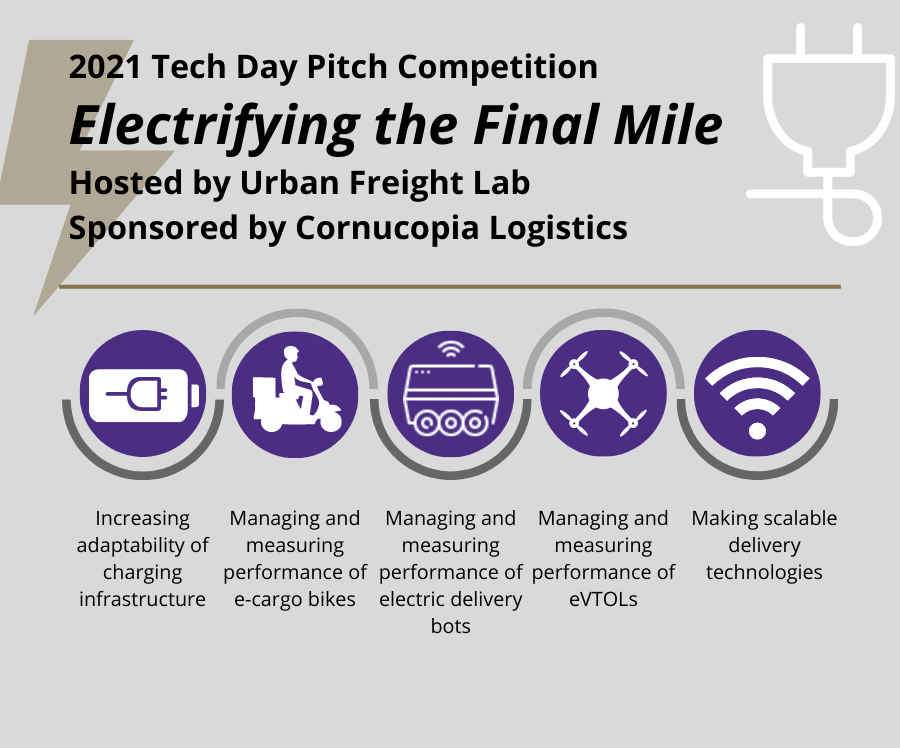
November 24, 2021 — The Urban Freight Lab (UFL) at the University of Washington announces the selection of four semi-finalists for our fifth annual Tech Day pitch competition, focused on Electrifying the Final Mile:
This year’s semi-finalists are:
- FlexiModal: BicyLift and Runner Trailer
- KUHMUTE: Universal Charging Network for Micromobility
- re:Charge-e: Vision for e-Cargo Bike Charging Infrastructure
- Scootility, Inc.: Utility Scooter Optimized for Last-Mile Delivery of Light Goods
The four semi-finalists now advance to pitch their solutions to UFL members (retailers, shippers, carriers, industry real estate, etc.), UFL researchers, local Departments of Transportation, and a panel of judges at the Tech Day event on December 7.
At the conclusion of the Tech Day event, a winner will be selected by a panel of industry expert judges based on technical feasibility, business application, and market potential of the solution, as well as quality of presentation:
- Giacomo Dalla Chiara, Research Associate, Urban Freight Lab
- Darryl Forbes, Vice President of Engineering, UPS Freight
- Kelly Rula, New Mobility Lead, Seattle Department of Transportation
- Bob Tiderington, Senior Manager of Strategy and Operations, BrightDrop
- Stephen Zoepf, Chief of Policy Development, Lacuna Technologies
Read more:
- Tech Day 2020: Last-Mile Delivery in the New Normal
- Tech Day 2019: Transforming the Final 50 Feet of Delivery
- Tech Day 2018: Technological Disruption and Innovation in Last-Mile Delivery
- Tech Day 2017: Innovative Freight Technologies
- Urban Freight Lab impact
- Current research
- Our members
- How we work
- Join the Urban Freight Lab
- In the media
About the Urban Freight Lab (UFL): An innovative public-private partnership housed at the Supply Chain Transportation & Logistics Center at the University of Washington, the Urban Freight Lab is a structured workgroup that brings together private industry with City transportation officials to design and test solutions around urban freight management. Since launching in December 2016, the UFL has completed an innovative suite of research projects on the Final 50 Feet of delivery, providing foundational data and proven strategies to help cities reduce truck dwell times in load/unload spaces, and failed first delivery attempts by carriers, which lowers congestion, emissions, and costs.